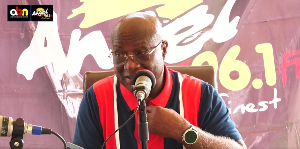Imminent hikes in utility tariffs have provoked a salvo of reactions from a cross-section of employers and their workforces, with both sides asking for improvements in service delivery before they pay more.
Both the Association of Ghana Industries (AGI) and Organsied Labour have issued statements saying any tariff hikes will worsen already precarious socio-economic conditions in the country.
At the presentation of third quarter results from its Business Climate survey on Tuesday, the AGI said businesses continue to reel under enormous pressure from exchange rate volatility, electricity shortages and high cost of credit, and so they cannot be further burdened with utility price hikes.
“Businesses are not ready for tariff increases,” AGI president, James Asare-Adjei, said. “The AGI believes it is about time consumers demanded value for money and efficiency in service delivery by the utility companies.”
In a letter addressed to the PURC, Organised Labour also said Ghanaians are already paying heavily for the “poor macro-economic performance and the technical and operational inefficiencies of the utilities,” and so should be spared the tariff hikes.
“As representatives of workers, we are worried about the ever-increasing utility tariffs which do not match the rate of increases in incomes,” said the letter which was signed by Dr. Yaw Baah, Acting Secretary General of the TUC.
The PURC has engaged a number of lobby groups, including the two, about the tariff increases being demanded by the utilities and is likely to announce a raise soon.
The utilities have raised a number of concerns, including cedi depreciation, the shift to relatively expensive thermal generation, and the huge web of debt that entangles the power sector, as the reasons they must be given a hundred percent raise in tariffs.
Main power generator the VRA, argues that its tariff has remained unchanged at 14.6047 pesewas since January 1, 2015 -- although the cedi has depreciated considerably over the period.
It is thus asking the PURC for a tariff increase from 14.6047 pesewas/kWh to 30.34 pesewas/kWh to enable it meet direct operating costs.
The ECG has asked for an increase from 16 pesewas per unit to 30pesewas, while the power transmitter, GRIDCo, is also asking for a lower rate of increase from 4 pesewas per unit of transmission to 5 pesewas.
The Ghana Water Company Limited, on its part, is asking for a 124 percent tariff adjustment from GH¢1.70 per cubic metre to GH¢4.00.
Business News of Friday, 6 November 2015
Source: B&FT

















